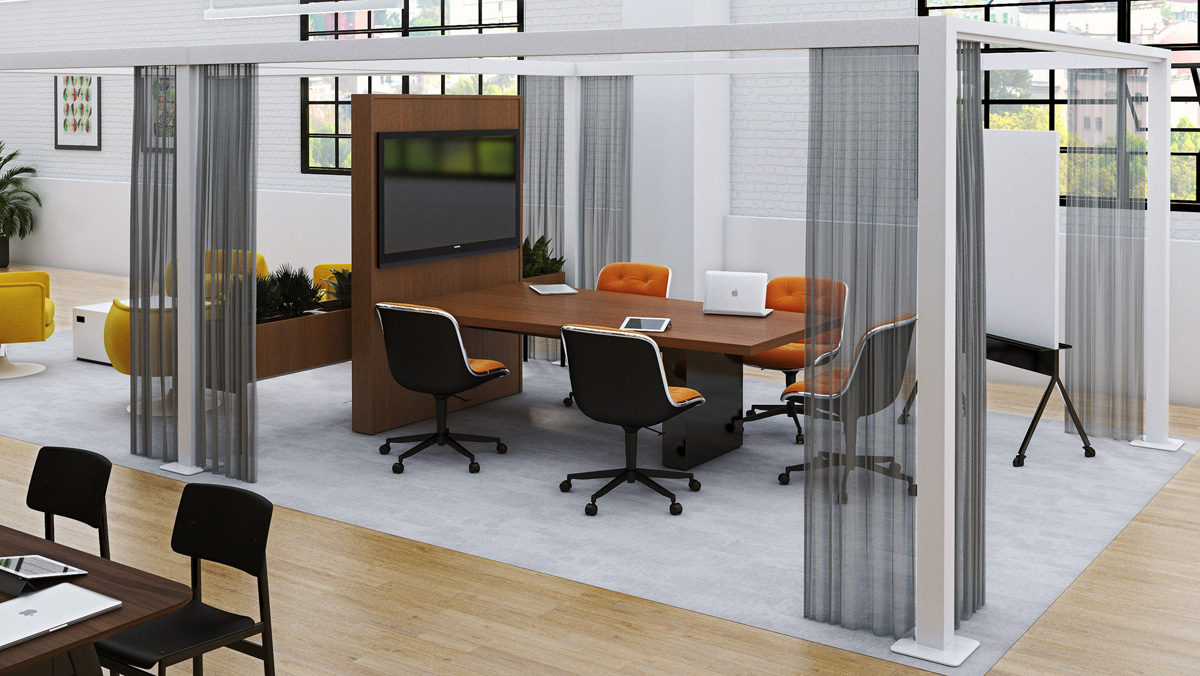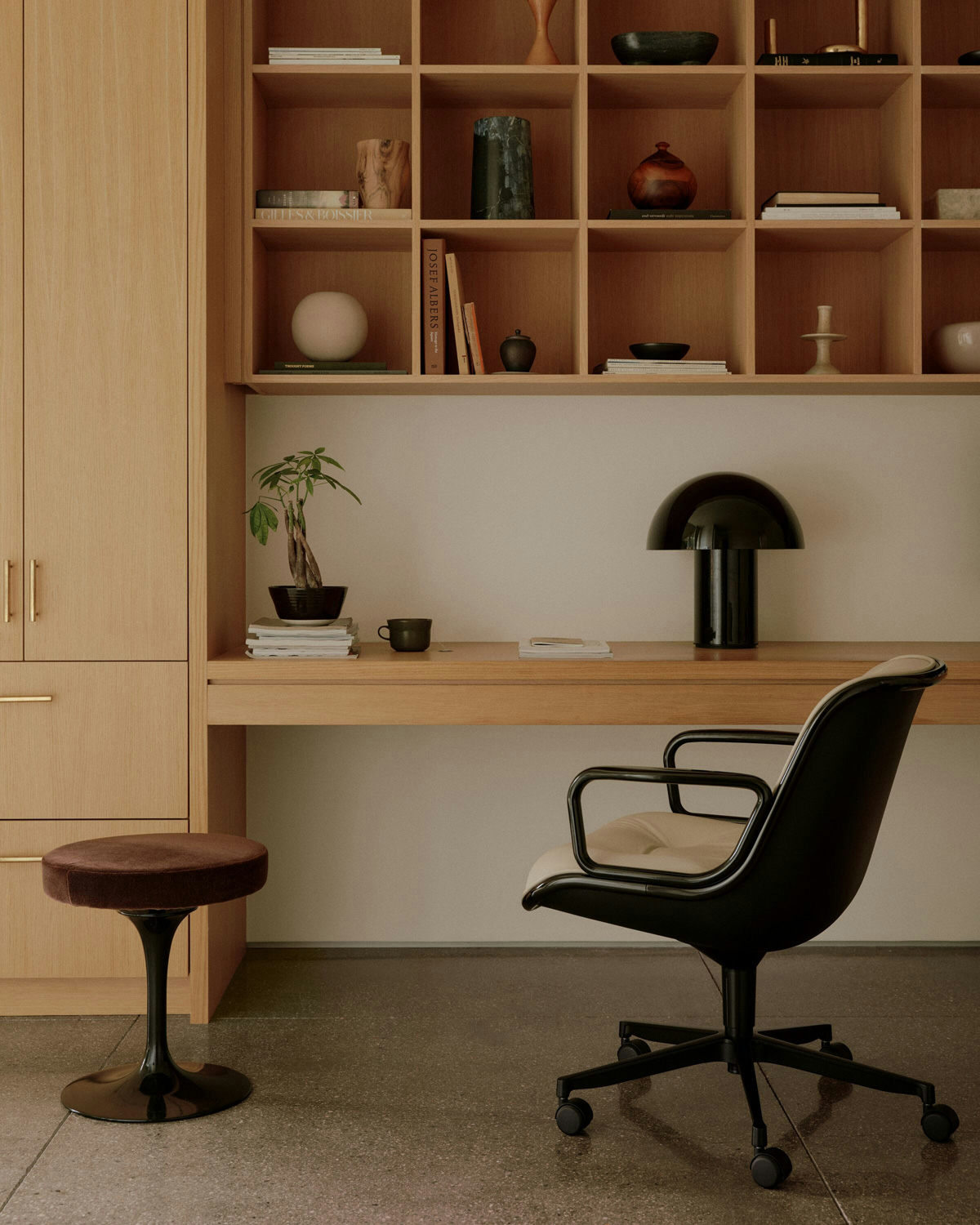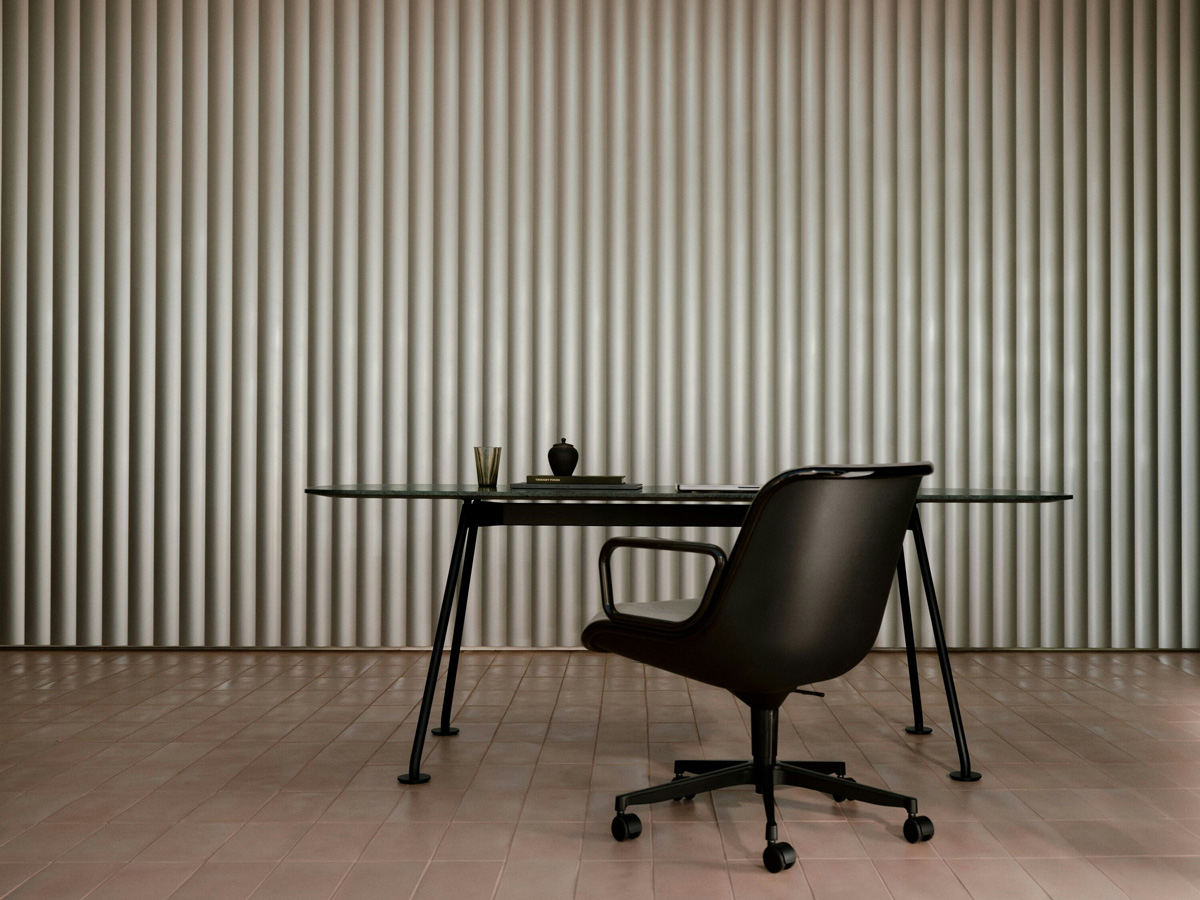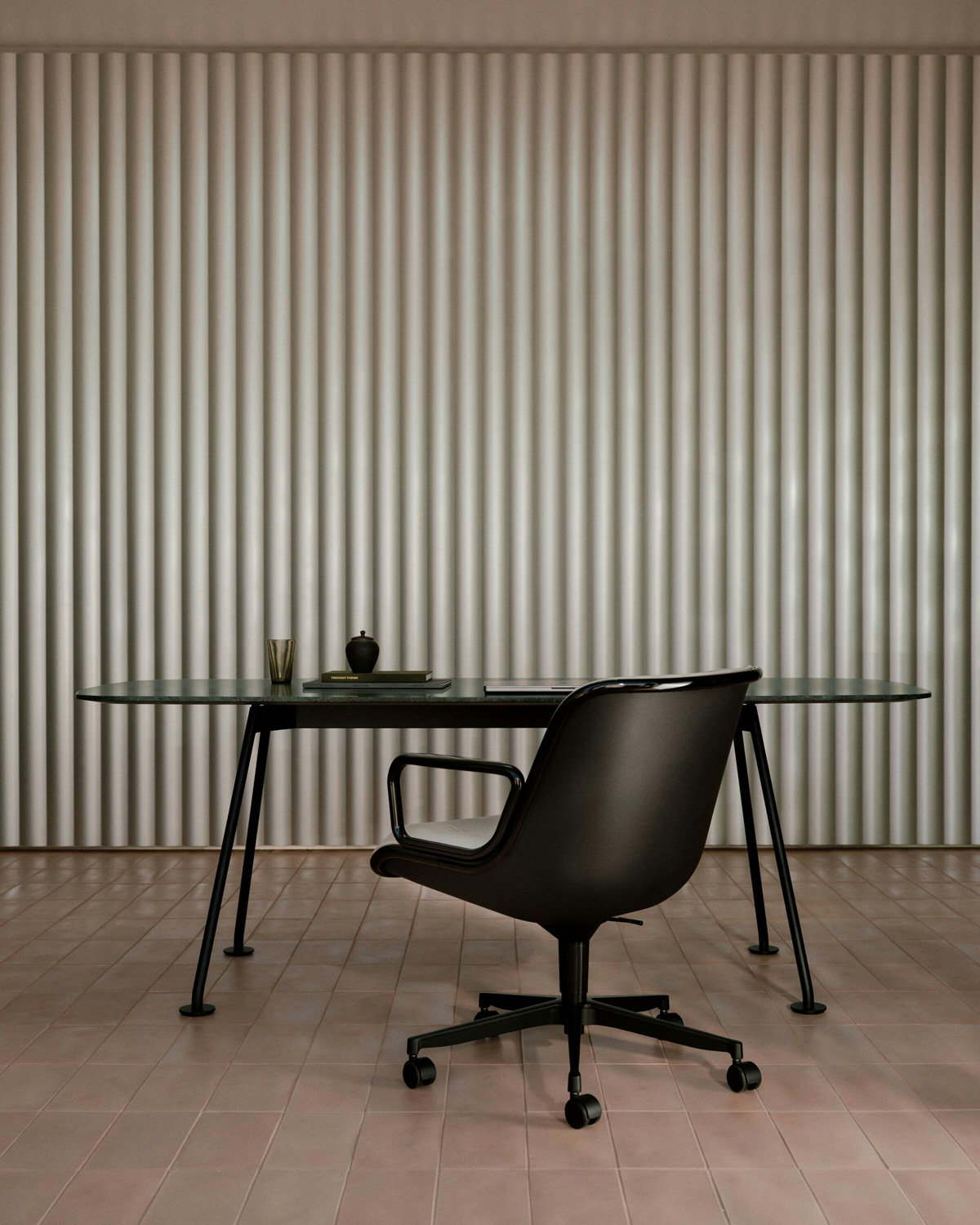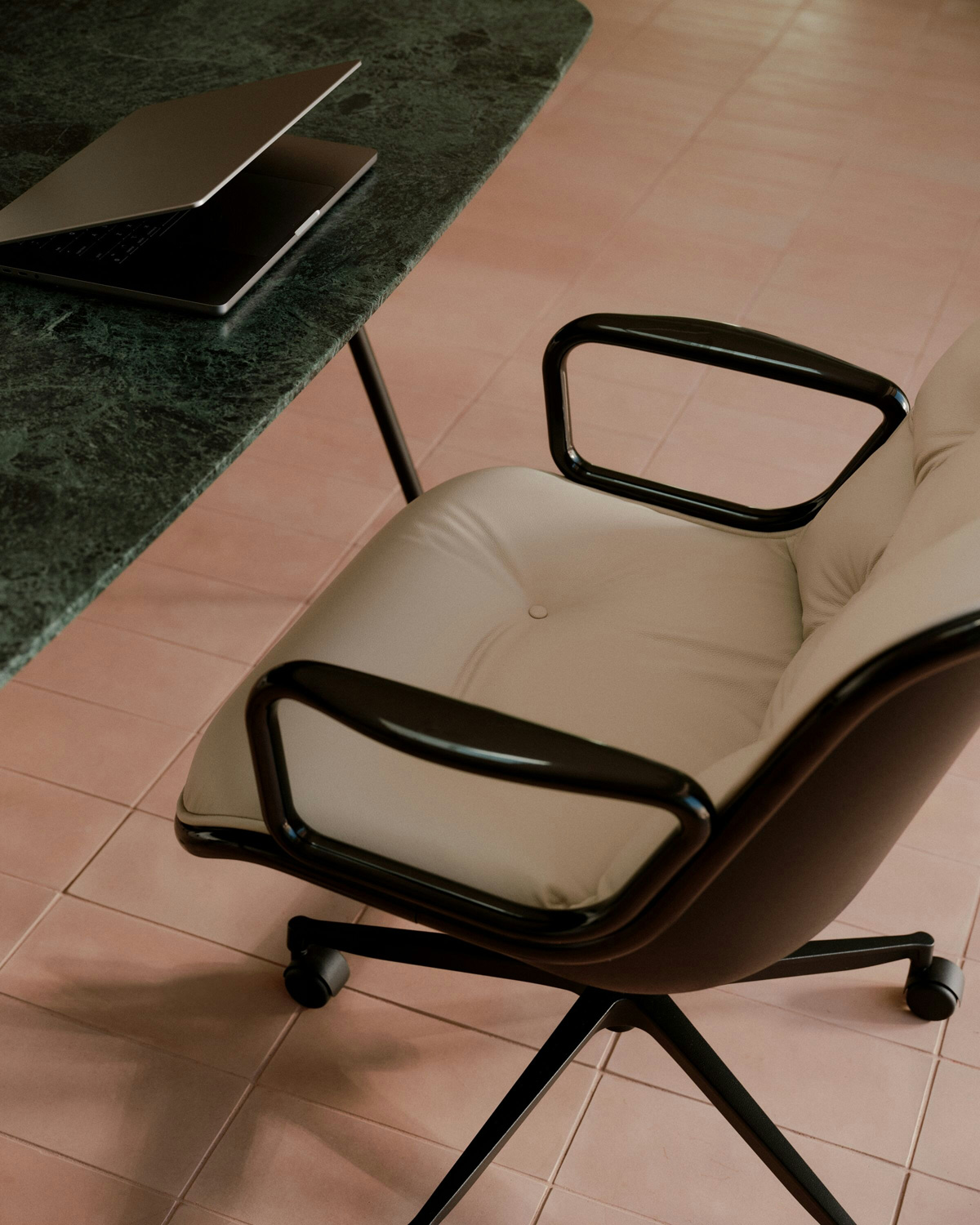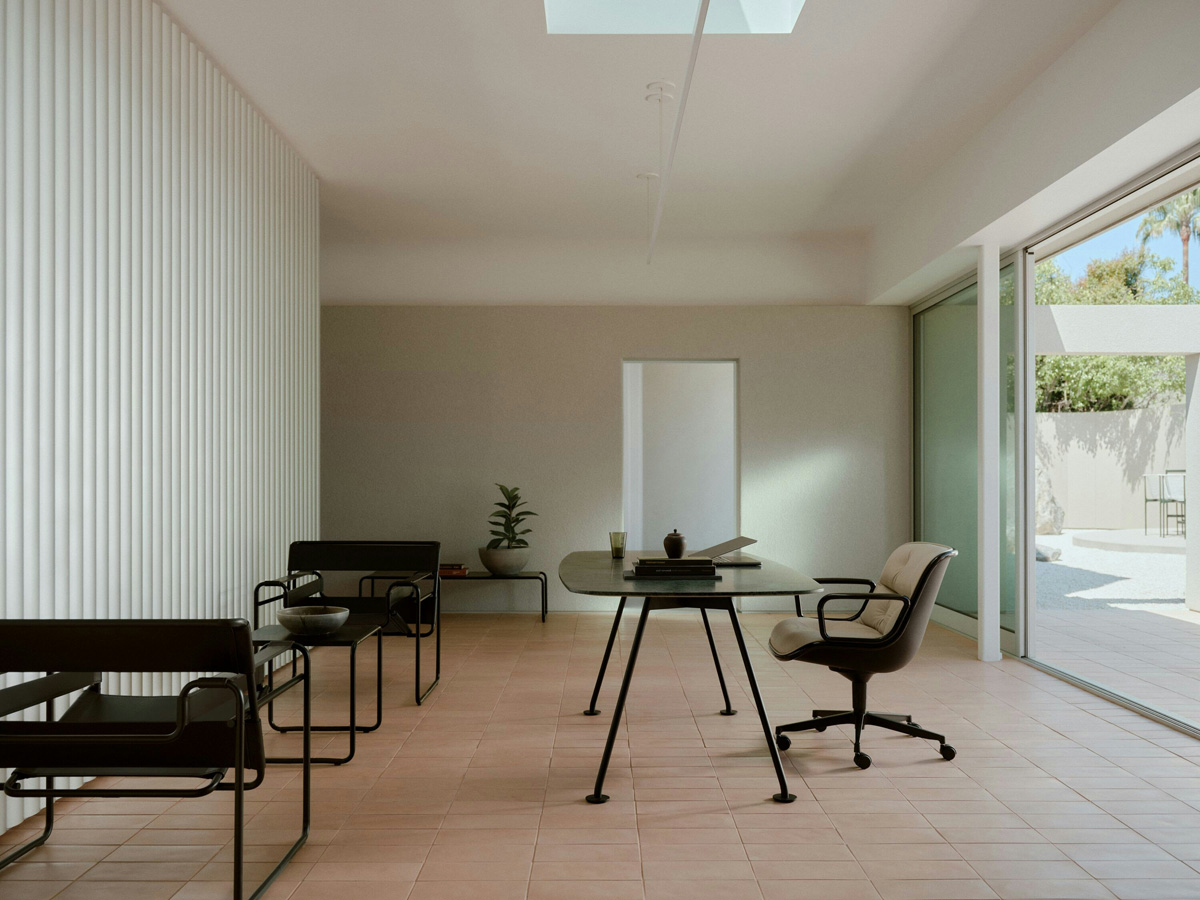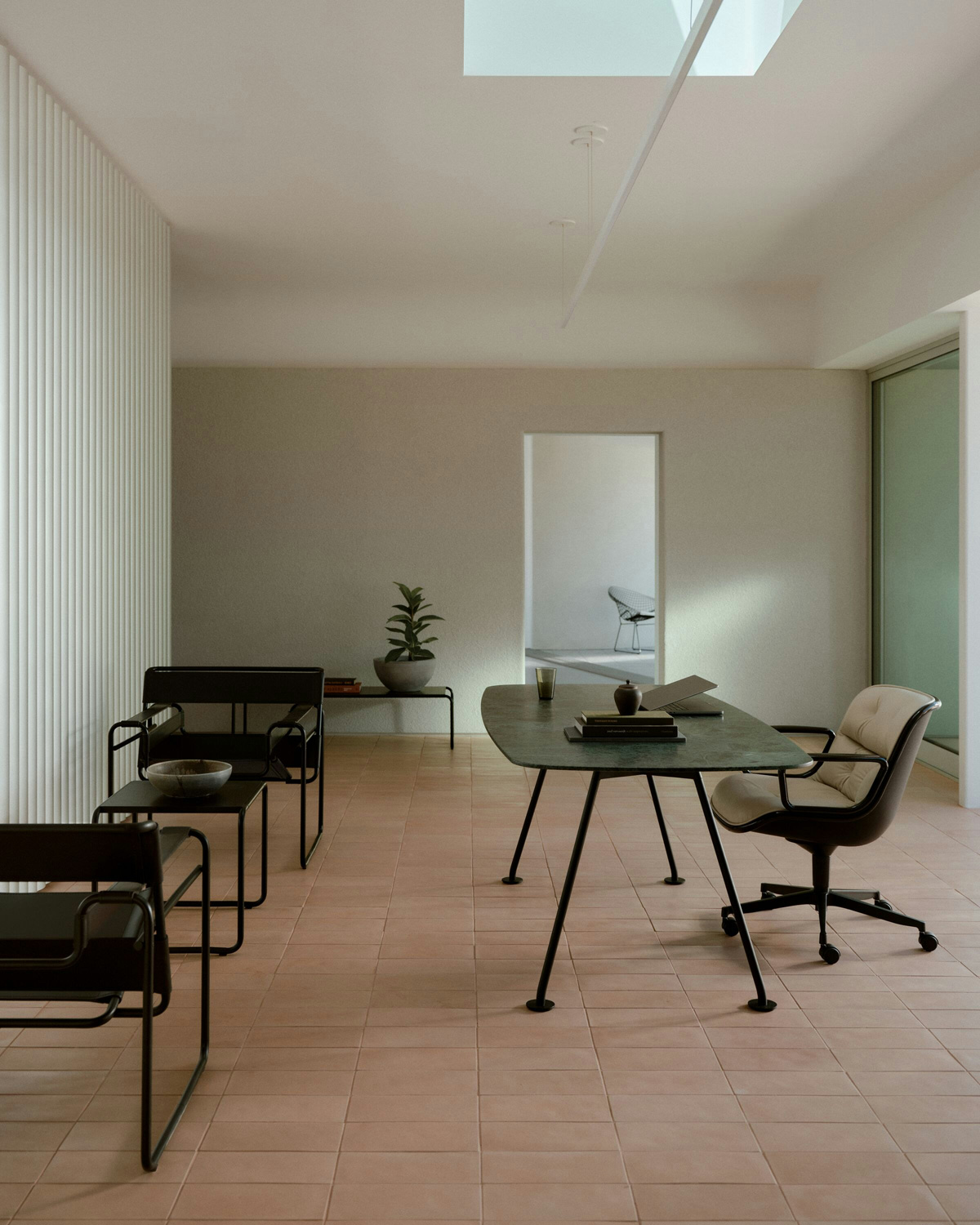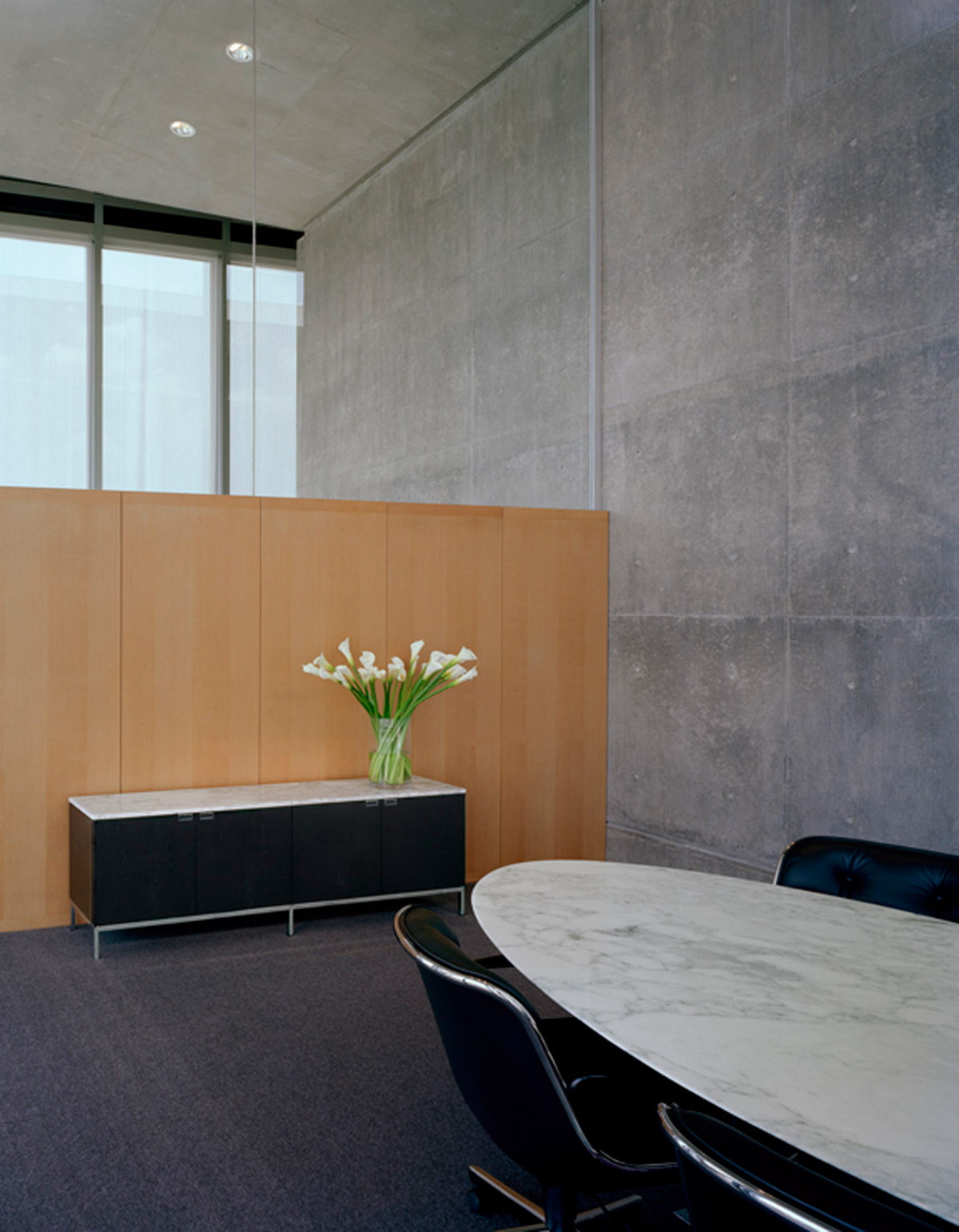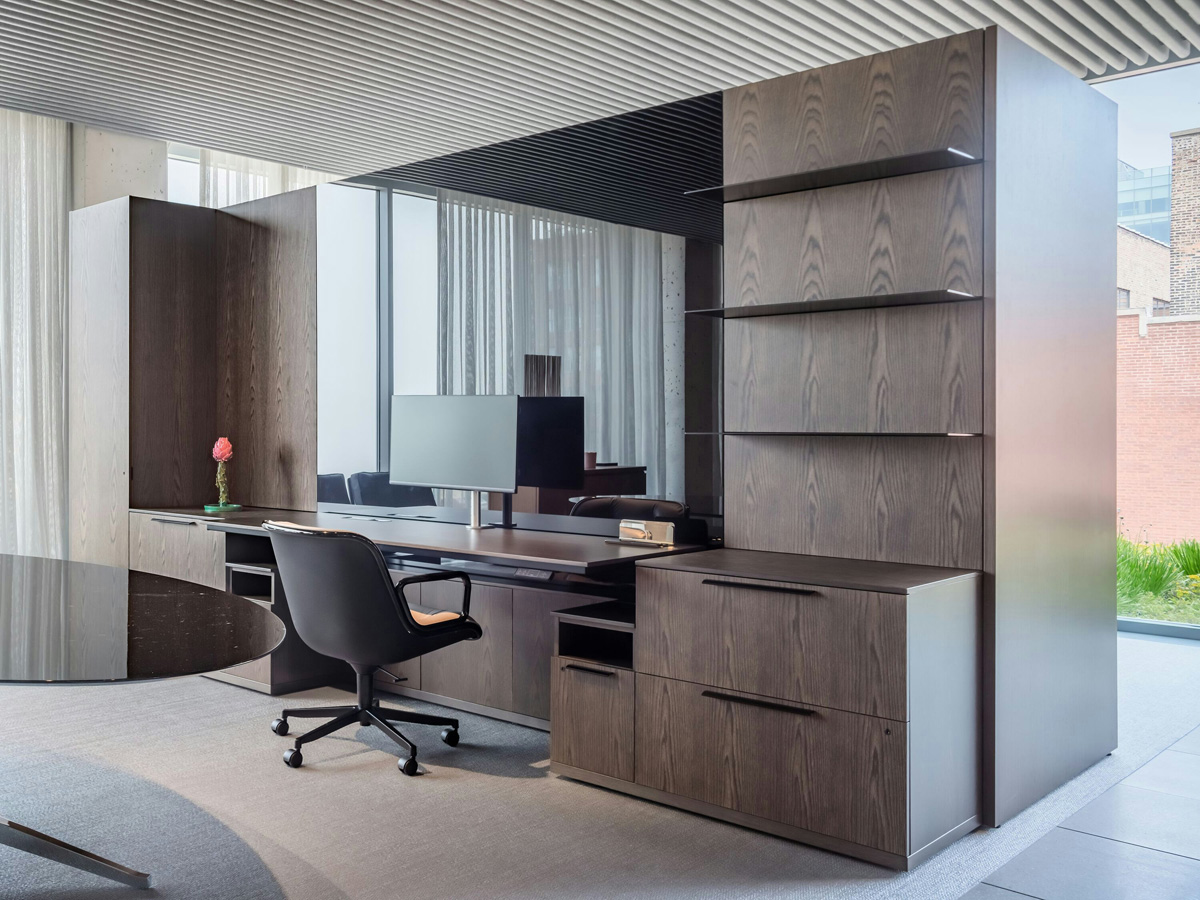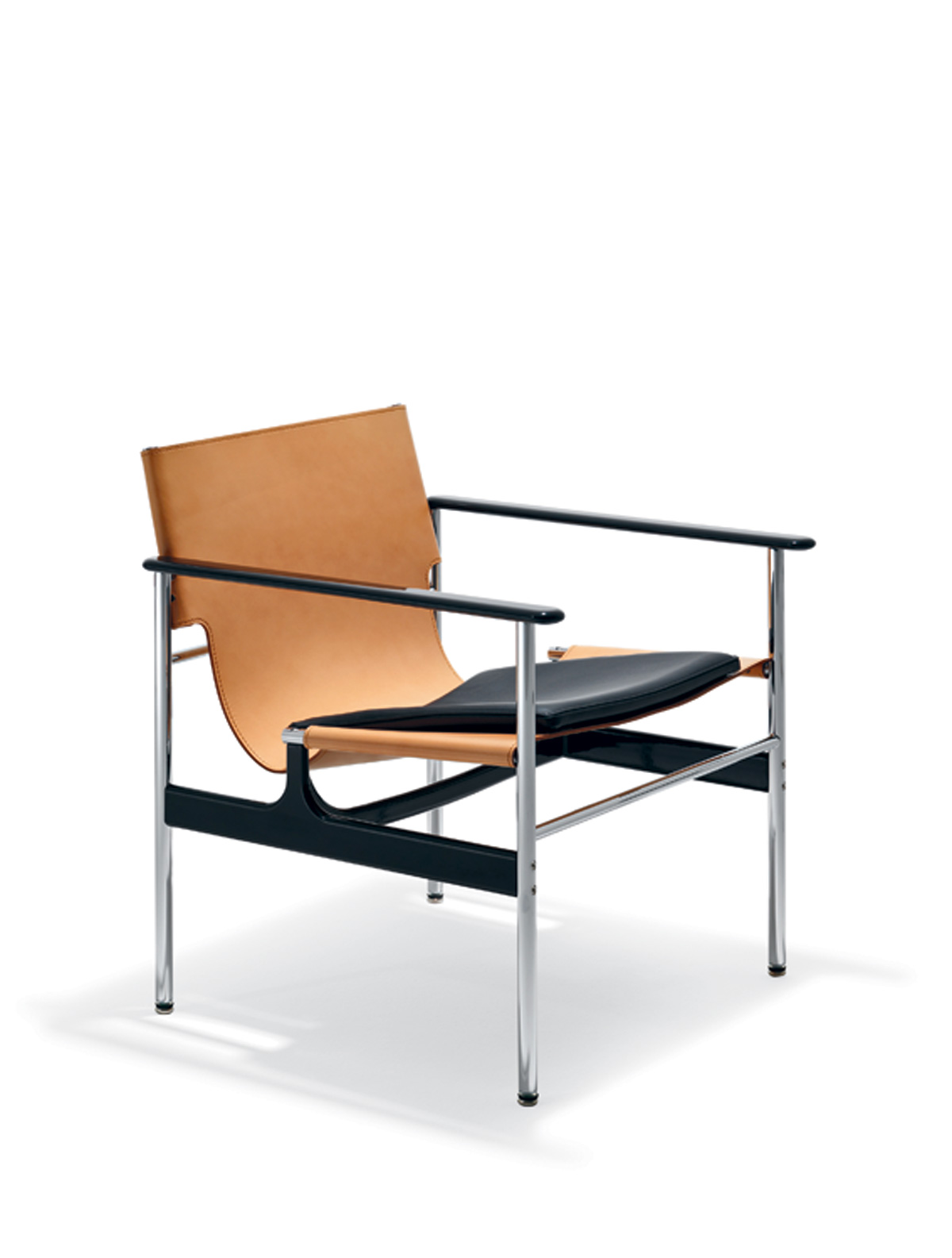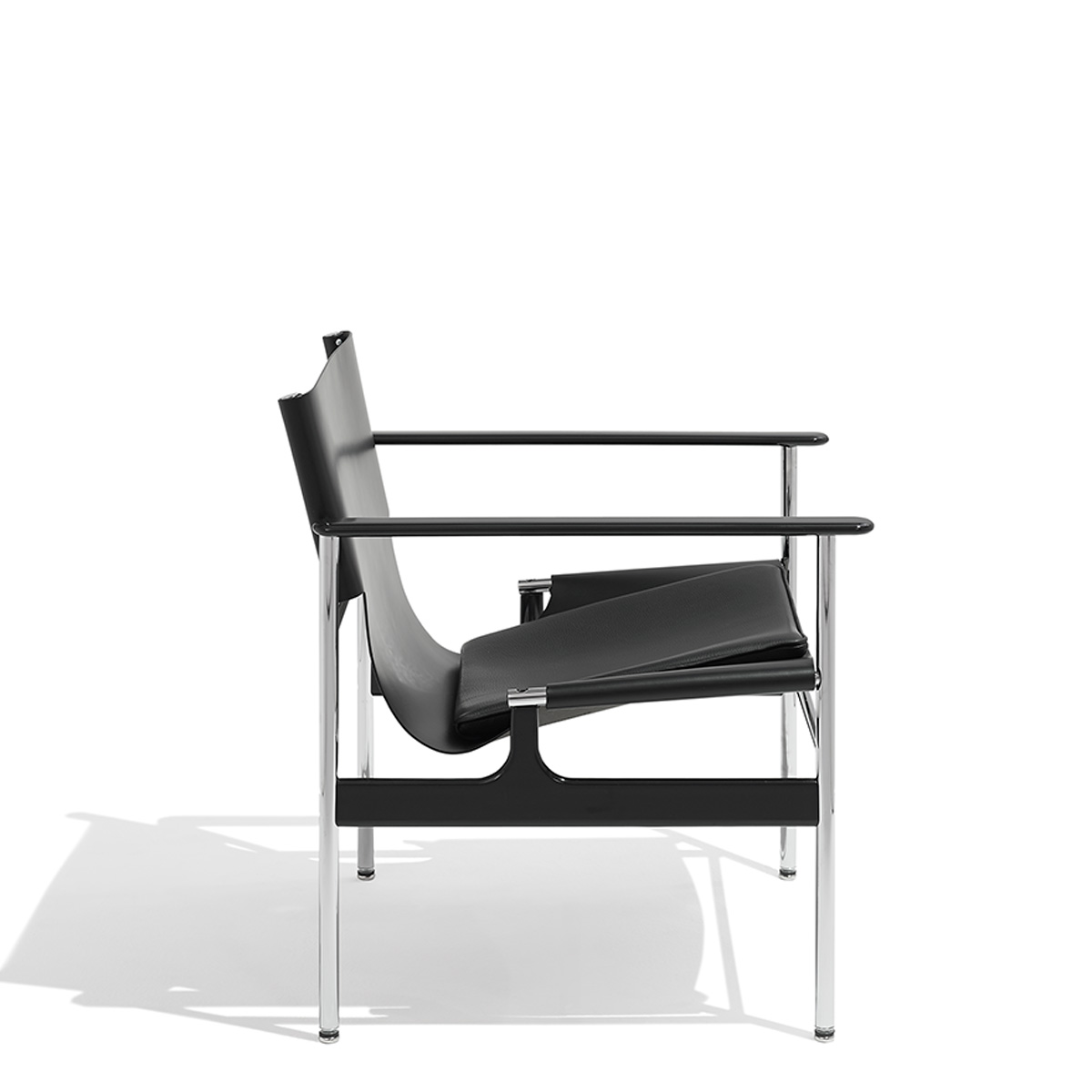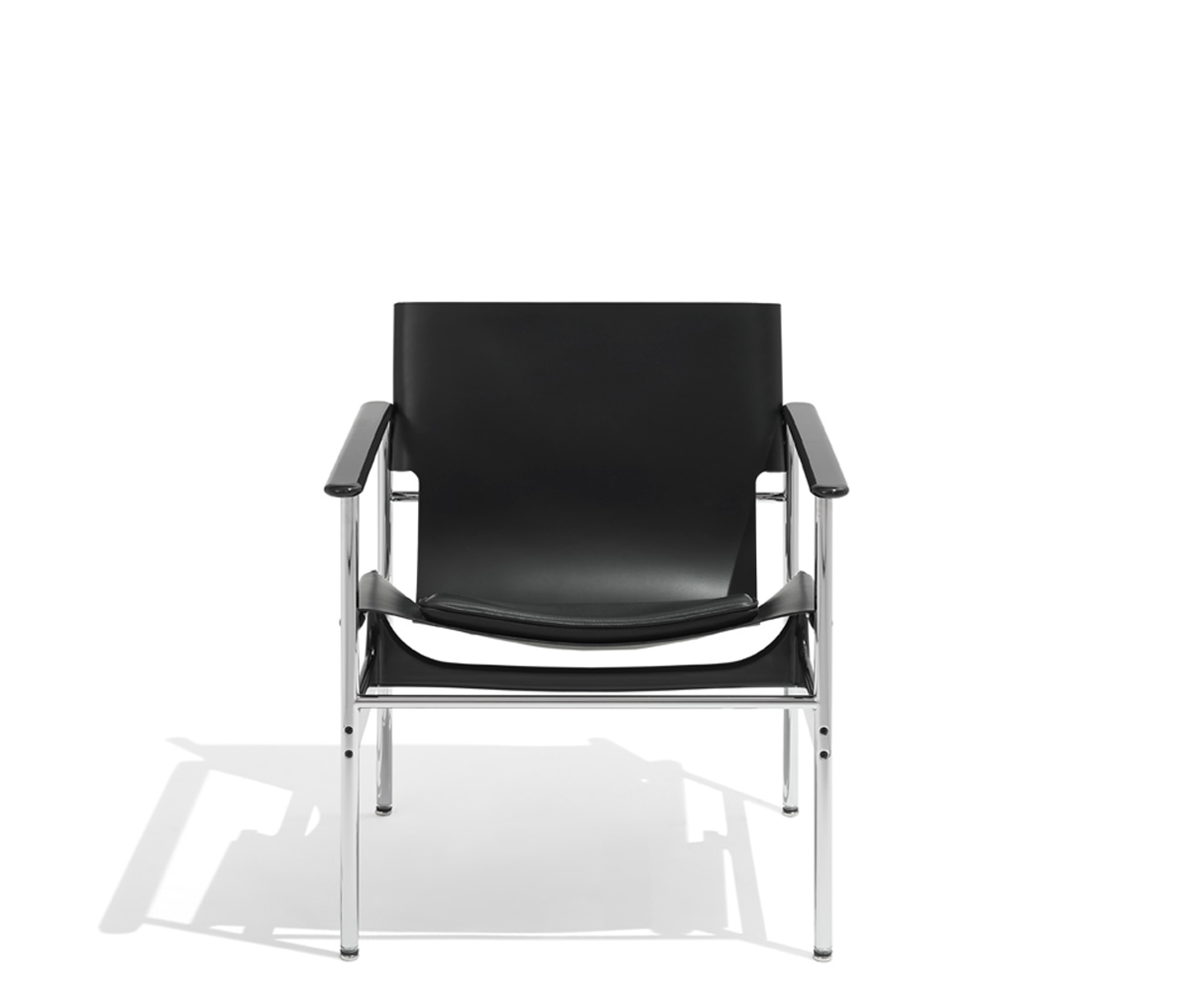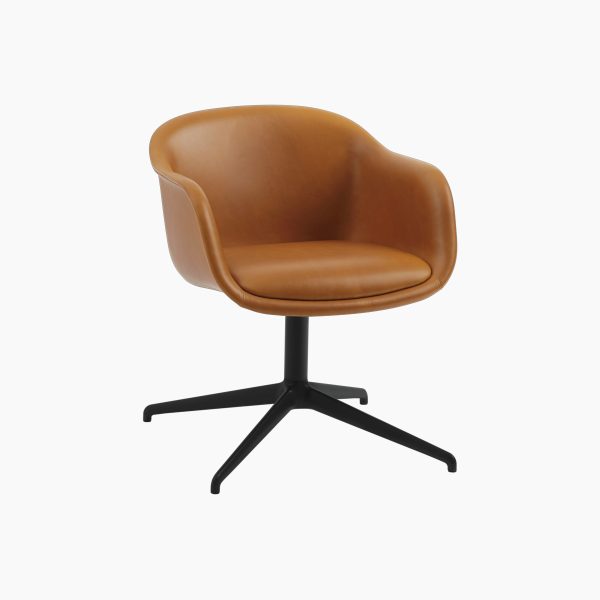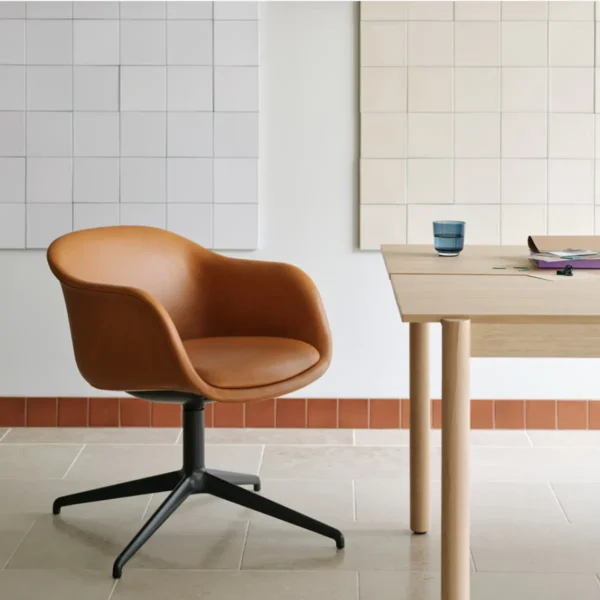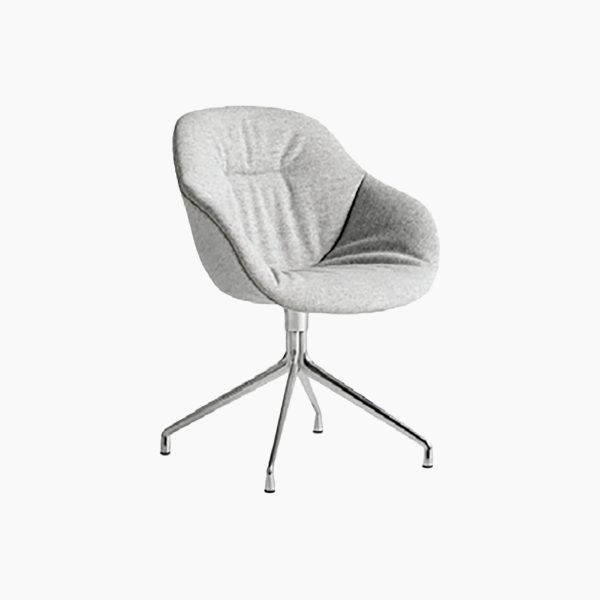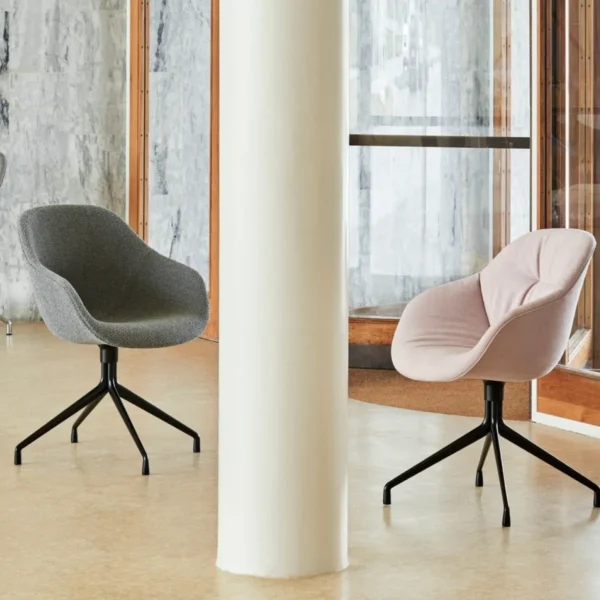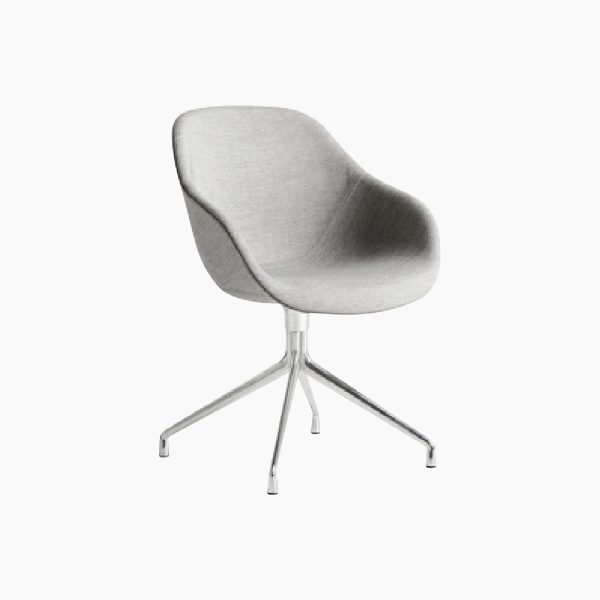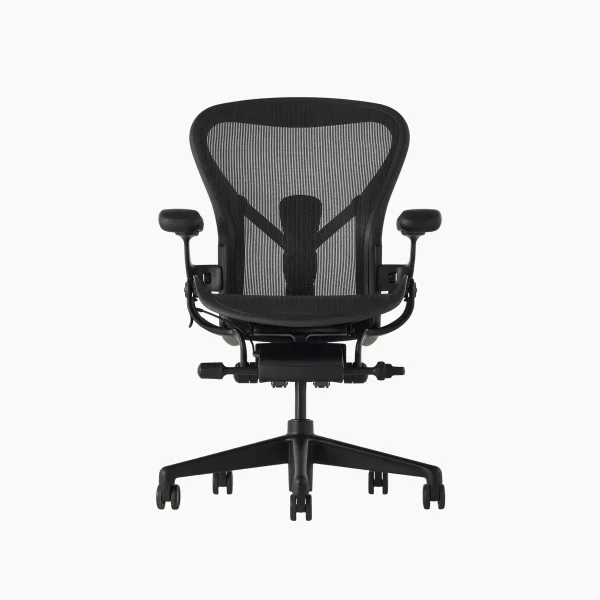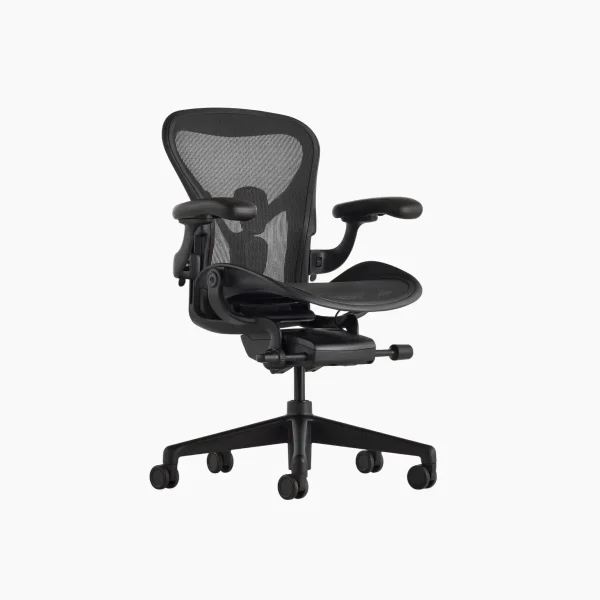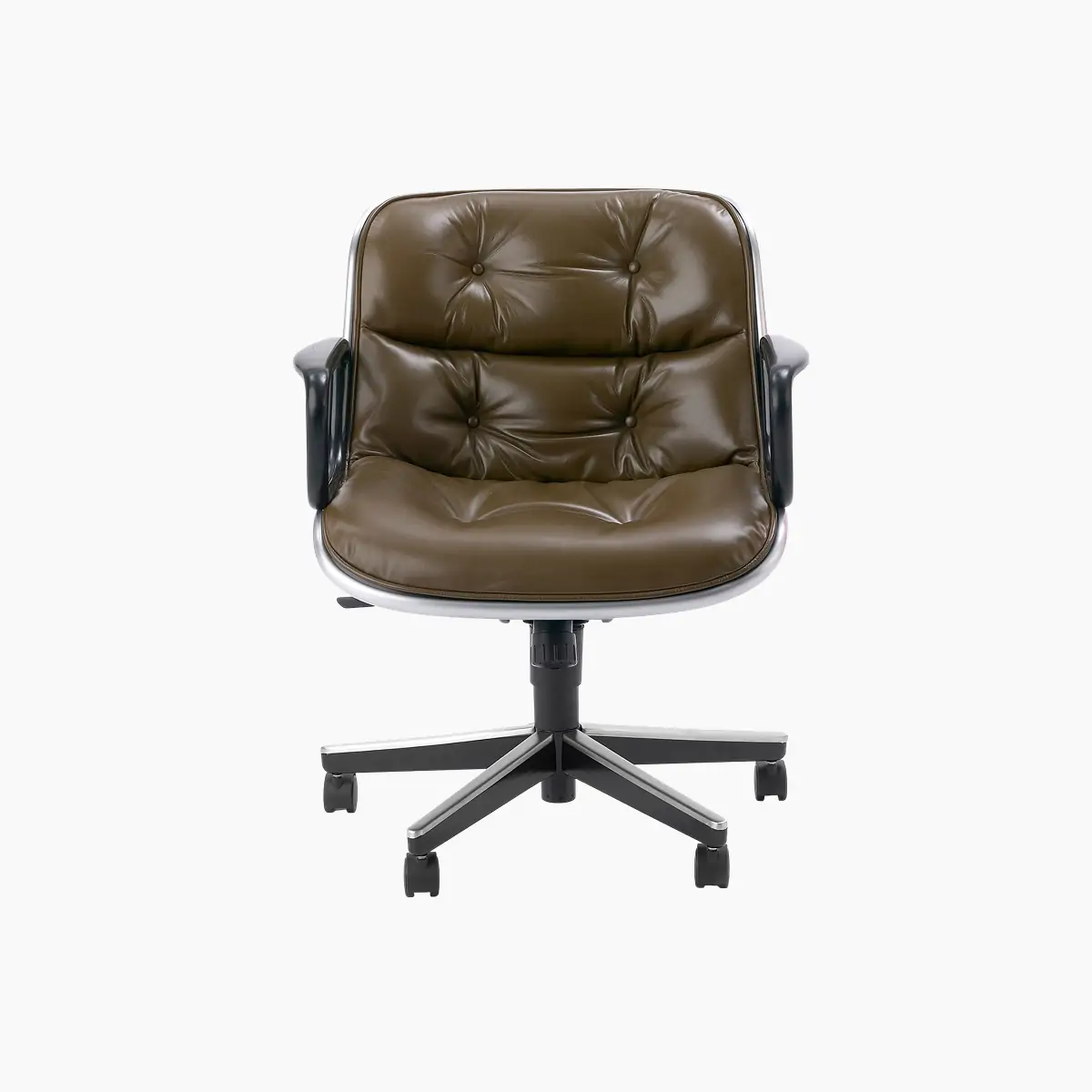
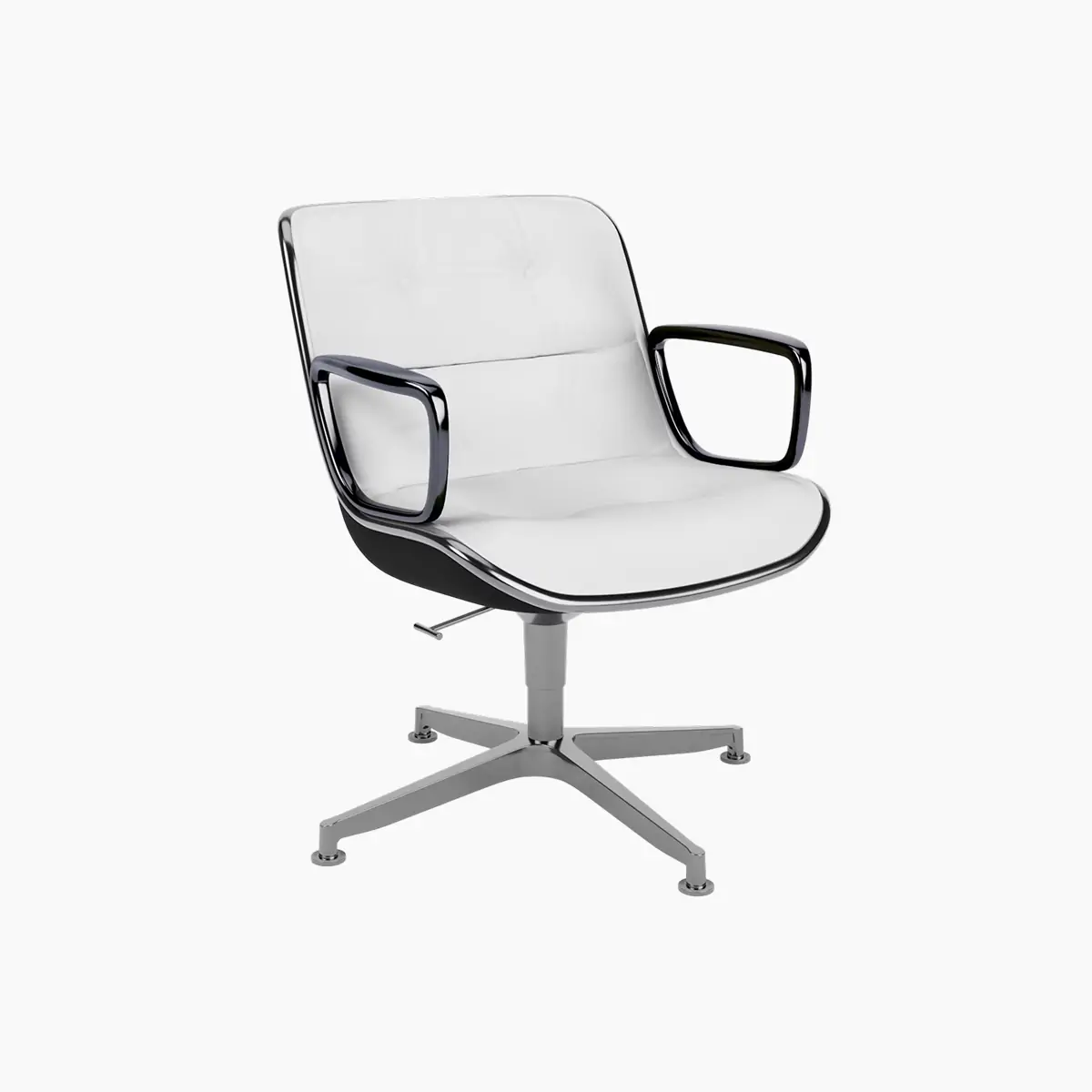
Pollock Executive Chair
Summary
Dimensions
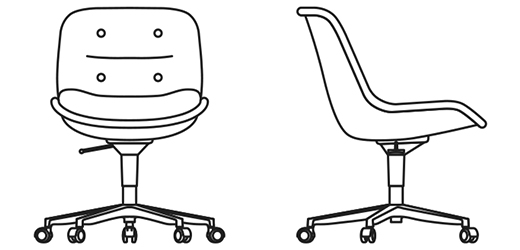
Pollock Executive Chair 5-Star with Arms
Width: 26.25″
Depth: 28.25″
Height: 31.5-33.25″
Seat Height: 18.5-21.25″
Arm Height: 24.5-27.25″
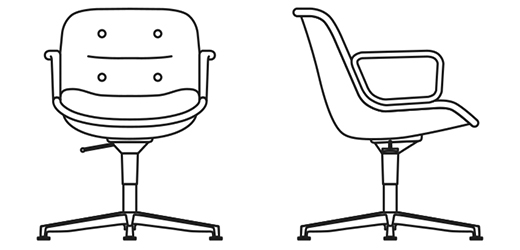
Pollock Executive Chair 4-Star with Arms
Width: 26.25″
Depth: 28.25″
Height: 31.5-34.25″
Seat Height: 18.5-21.25″
Arm Height: 24.5-27.25″

Pollock Executive Chair 5-Star, Armless
Width: 23.5″
Depth: 28.25″
Height: 31.5-33.25″
Seat Height: 18.5-21.25″

Pollock Executive Chair 4-Star, Armless
Width: 23.5″
Depth: 28.25″
Height: 31.5-34.25″
Seat Height: 18.5-21.25″
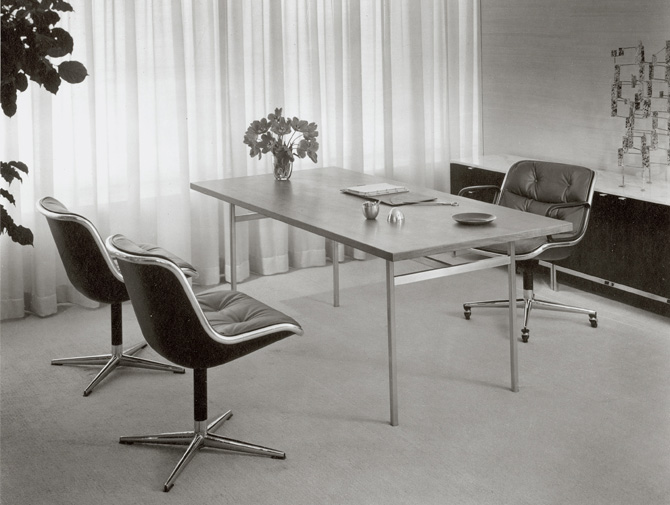
Product Story
Charles Pollock challenged himself to create a chair inspired by a single line. “Everything has an edge and everything is a line…I experimented with wire and curved the edge…I developed the idea of ‘rim technology’ and hit on the design.”
Pollock’s concept was an aluminum extrusion outlining the chair that would be the central structure, holding the parts together without any further support. Slots in the aluminum rim held secured the upholstery and back shell, which became rigid only once it was fitted into the rim.
In addition to providing structure, the rim also acts as a bumper. Pollock explains: “It doesn’t rust, it doesn’t tarnish, it doesn’t fade. It keeps its visual appearance almost forever. In other words you have a visually pleasing color or texture or chrome finish articulated in a fashion that goes around the edge of the chair, which is beautiful and acts as a guard against destructing the chair no matter where you hit it….up, down, front, side, back, whatever.”
While Charles Pollock’s initial idea was ingenious, people close to the project recall that it was Florence Knoll’s legendary guidance and impeccable taste that pushed him to quiet the design down and reach his iconic final sollution.
Charles Pollock
After graduating from Pratt Institute and working with George Nelson, Charles Pollock assembled a portfolio of designs and presented them to Florence Knoll. Planning Unit member Vincent Cafiero saw promise in a leather and steel lounge chair and encouraged Pollock to keep working on the design. The 657 Lounge, as it was introduced in 1961, showed the young designer’s precision handling of line, form, and materials.
Pollock again demonstrated his command of line and material when he conceived the 1250 series executive collection, introduced in 1965. His idea for the chair was to use an aluminum “rim,” which outlined the chair as the main structural and design element. This rim would hold the parts together, without any further support; slots in the aluminum held the back shell and the upholstery in place, and the plastic back became rigid only after being fitted into the frame. The resulting design was an achievement in structure and aesthetics, and the chair remains a Knoll classic to this day.


